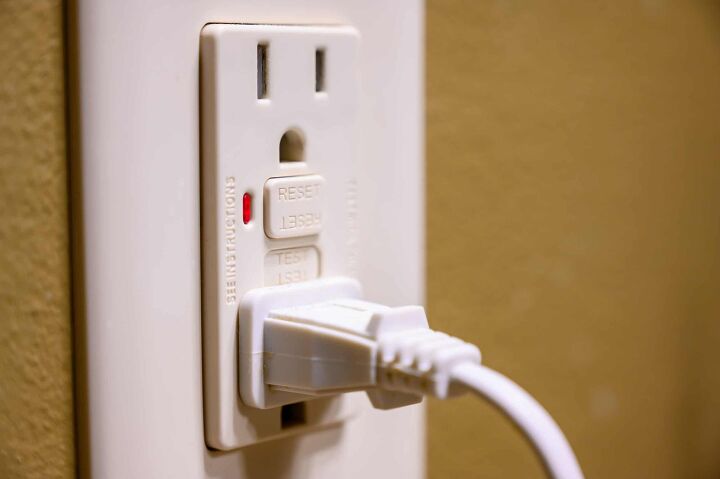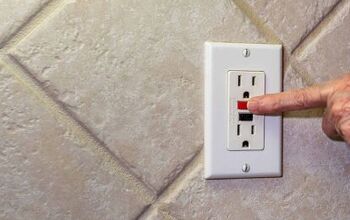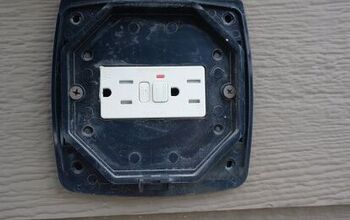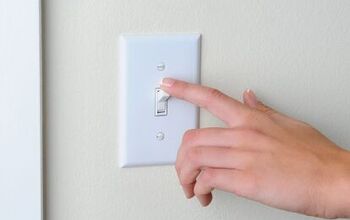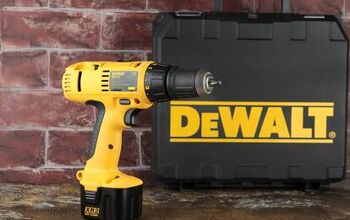GFCI Outlet Buzzing? (Possible Causes & Fixes)

Ensuring that your wall outlets, GFCI included, are functioning properly is essential to the prevention of electrical fires, short circuits, and other possible electrical problems in the home. If your GFCI outlet is buzzing, this could be a result of a number of different issues. Their main purpose is to prevent electrocution, and when you’re experiencing any sort of malfunction with your GFCI, it’s important that you troubleshoot and fix the problem as soon as possible.
Some GFCI outlets produce a slight humming noise when being reset. However, if the sound is continuous, your GFCI outlet may be buzzing due to incorrect installation, bad wiring in your home, loose connections, and more. Thankfully, there are some basic troubleshooting methods that you can perform yourself in order to determine the problem. Although, before considering making any changes to your home’s wiring, always confer with a certified electrician first.
Do You Need to Hire an Electrician?
Get free, zero-commitment quotes from pro contractors near you.

What is a GFCI Outlet?
A GFCI, GFI, or Ground Fault Circuit Interrupter is a device that protects against the risk of being electrocuted or severely shocked. It is specially designed to break the circuit whenever an imbalance is detected between incoming and outgoing electrical current.
The GFCI outlet safeguards against overheating within the electrical wiring and receptacles, effectively preventing fires. It also works by sensing ground faults and disrupting the flow of current. These devices are required to be installed in the home and recommended in areas that are positioned close to water such as bathrooms, kitchens, laundry rooms, etc.
Why is My GFCI Outlet Buzzing?
In general, when you have a buzzing noise coming from your GFCI outlet, this is a strong indication that it is defective and needs to be replaced. While you can certainly engage in some simple troubleshooting procedures, we recommend having an electrician come out to take a look. The reasons why your GFCI outlet is buzzing could be one, or a combination, of the following reasons.
Faulty Receptacle or Outlet
The most common reason why an electrical outlet will buzz has to do with the decline of the inner components. Contact blades inside of the outlet are responsible for holding plugs in place. If these blades become damaged or loosen up, they will not sustain the appropriate contact with the plug, resulting in buzzing.
In these cases, the simplest fix to stop the buzzing is to have an electrician come out and replace the entire GFCI outlet. These types of outlets are not very expensive to purchase from a local hardware center. Hiring a certified electrician will ensure that the new outlet is installed correctly and the connections are making ample amount of contact.
Loose Connections
Another cause of buzzing in a GFCI outlet is loose wires within the connections. For whatever reason, if the wires within your outlet become loose they will vibrate and cause a noticeable buzzing sound.
More specifically, the wires that are capped and twisted together inside the outlet box, along with the wires that are connected to the outlet, can all vibrate in the presence of loose connections. Additionally, when you have loose connections inside, the entire outlet itself can vibrate and cause buzzing.
While loose connections are more likely to occur in old outlets, they could also be a direct result of improper installation. Regardless, GFCI outlets with connections that are not properly secured should either be tightened or professionally replaced in order to stop the buzzing.
You can attempt to stop the noise by tightening the connections yourself. Make sure that you turn off the breaker to the circuit first and then remove the wall plate to expose the outlet. By unscrewing and removing the outlet from the box, you should be able to determine if there are any loose connections that need tightening.
If you don’t see any connections that are loose, replace the outlet.
Defective Lamp or Fixture
Although this is less often the cause of a buzzing GFCI outlet, you may have an electrical device with bad wiring. In this case, the buzzing has to do with the electrical wiring within the lamp or fixture that is connected to the outlet, and not the outlet itself.
To eliminate this as a possible reason, try moving the fixture to another outlet and examine of the buzzing continues. If you can replicate the buzzing, then the issue is with the fixture rather than your GFCI outlet.
Dimmer Switches
If your dimmer switches share a circuit with other outlets, they can often produce buzzing at both the outlet and the light fixture. In order to determine if it’s your dimmer switch causing the sound, shut off the dimmer switch completely and listen for the buzzing at the outlet.
If you notice that the buzzing noise stops when the dimmer switch is no longer on, it may be the cause of the sound. You can try remedying this by swapping out your light bulb with a rough service bulb. However, if this doesn’t work, you’ll likely have to change the dimmer switch to a regular switch.
Temperature Changes
Another less likely, but still relevant, reason why your GFCI outlet may be buzzing is changes in temperature. Drastic shifts in temperature can cause electrical equipment to expand and contract. These circumstances can cause connections to loosen up within the outlet.
Bad Wiring
Whether the wiring in your home was installed incorrectly or it has started to deteriorate over time, bad wiring can produce arcing and other issues at the circuit breaker. The wiring within your outlet may have corroded or become burnt and, if this is the case, are potentially dangerous conditions. General problems with your home’s wiring can cause a buzzing noise to emanate from your GFCI, and other outlets in your home.
If you suspect this to be the case, and none of the above issues apply, consult a licensed electrician right away. You should never attempt to adjust the wiring in your home without the necessary safety precautions and expertise.
Breaker Problems
The final possible cause for buzzing at your GFCI outlet relates to the actual circuit breaker. If the breakers in your electrical system are distributing too little or too much electricity to the outlets, this discrepancy can create a buzzing noise in your outlets.
Unlike connectivity or wiring issues, breaker problems cannot be fixed at the outlet. You’ll most likely need to have a breaker completely replaced in order to stop the annoying buzzing noise from coming out of your GFCI outlet.
Is a Buzzing GFCI Outlet Dangerous?
Concern and worry may be your first reaction when you hear a peculiar buzzing sound coming from any part of your electric system. However, a buzzing GFCI outlet does not pose any immediate danger. With that being said, you should still have it looked at by a certified electrician as early as possible.
Buzzing in any outlet signifies that something isn’t functioning properly. With a malfunctioning GFCI outlet, your home is at a greater risk of electrical fires, electrocution and other possibly hazardous situations.
Do You Need to Hire an Electrician?
Get free, zero-commitment quotes from pro contractors near you.

Wrapping It Up
Whether it’s a loose connection, faulty outlet, defective light fixture or issues with the breaker, your best course of action to stop your GFCI outlet from buzzing is to replace it. Whenever you are working with electricity, make sure that you turn off the power at the circuit breaker and verify that there is no electrical current within the outlet.
If you feel confident in your abilities and take the necessary precautions, you can certainly attempt to troubleshoot the problem yourself. However, a repair of this nature is almost always a task best performed by a certified electrician.
Related Guides

Jessica considers herself a home improvement and design enthusiast. She grew up surrounded by constant home improvement projects and owes most of what she knows to helping her dad renovate her childhood home. Being a Los Angeles resident, Jessica spends a lot of her time looking for her next DIY project and sharing her love for home design.
More by Jessica Stone



